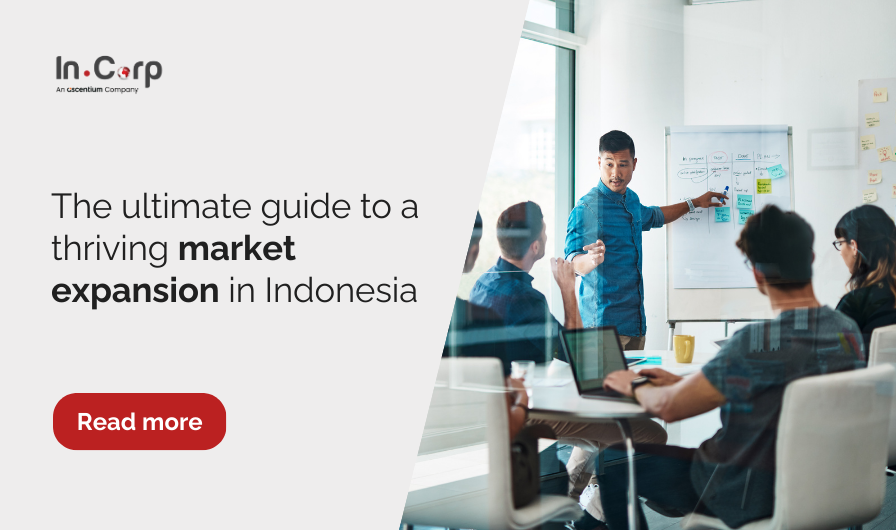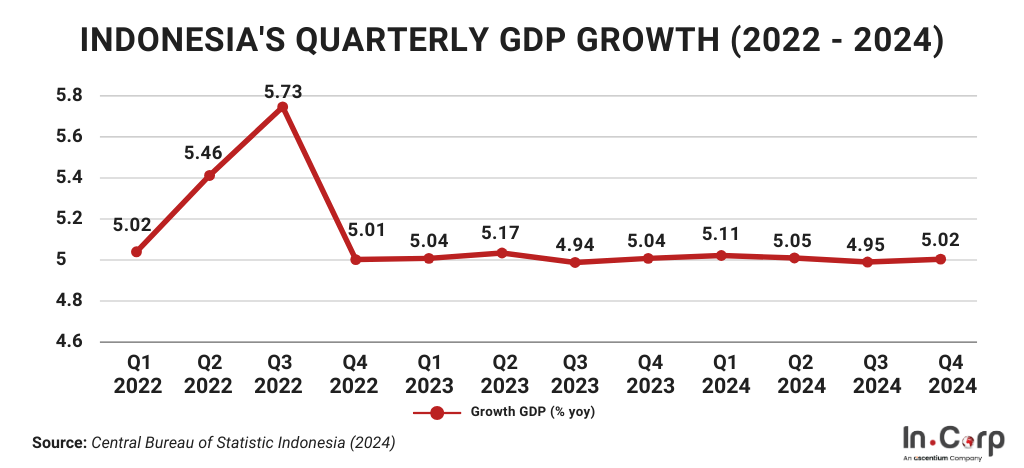Expanding into Indonesia’s thriving market presents many opportunities for businesses to flourish in Southeast Asia. With its rapidly growing economy, Indonesia has emerged as a top destination for international investors.
The country offers a promising landscape for market expansion and unprecedented growth potential. However, successfully navigating Indonesia’s market entry strategies and regulatory challenges requires meticulous planning and insightful understanding.
This article will delve into key factors for successful market expansion in Indonesia, providing businesses with the necessary tools to maximize their full market potential.
Indonesia as your next destination
Indonesia, the largest economy in Southeast Asia, thrives on strong domestic consumption, which makes up 58% of its GDP. In 2023, foreign direct investment (FDI) hit $45.6 billion, attracting global investors eager to tap into its rapidly expanding market.
The country’s large population presents vast opportunities for businesses aiming to grow in a dynamic and fast-evolving economy. By 2024, Indonesia’s GDP grew by 5.2% year-on-year, fueled by foreign investments and economic reforms.
Contributing to over one-third of ASEAN’s GDP, Indonesia is on track to become the region’s financial hub and is projected to rank as the world’s fourth-largest economy by 2050. These factors position Indonesia as a prime destination for global market expansion.
Overview of Indonesia’s market landscape
Indonesia’s growing market expansion potential is determined by its rapidly expanding consumer market, contributing to the growing economy. Here are the key factors shaping the market:
Large and growing population
Indonesia boasts the largest consumer market in Southeast Asia, with a population exceeding 277 million people. This vast market plays a crucial role in driving GDP growth in the region.
Expanding middle class & rising purchasing power
Indonesia’s middle class is projected to grow to 140 million people by 2030, significantly increasing demand for consumer goods, retail services, and digital offerings. This demographic shift is likely to reshape the country’s market landscape.
Changing consumer behavior & digital transformation
Indonesia’s rapid digital adoption drives a significant shift toward online shopping, mobile payments, and fintech services. Its e-commerce sector is expected to exceed $95 billion by 2025.
Insights into Indonesia’s consumer behavior
Understanding how consumers shop is important, and it’s essential for businesses looking to expand in Indonesia. Several factors shape buying habits and influence how businesses should adapt, and having this knowledge empowers enterprises to make informed decisions.
Below are the key insights into how Indonesians engage with brands and make purchasing decisions:
1. Digital-first consumers
- With over 200 million internet users, Indonesians prefer mobile shopping and social commerce.
- Digital payments are on the rise, with e-wallets like GoPay, OVO, and ShopeePay gaining widespread adoption.
2. Price-sensitive buyers
- Indonesian consumers seek affordable prices and value brand trust and quality.
- Discounts, promotions, and “buy now, pay later” (BNPL) options influence purchase decisions.
3. Strong social media influence
- Social media plays a significant role in shaping buying behavior, primarily through influencers and reviews.
- Platforms like Instagram, TikTok, and WhatsApp are key platforms for brand engagement and sales.
4. Preference for convenience & fast delivery
- Indonesians prioritize quick and hassle-free shopping, with fast transactions and delivery.
- Online marketplaces like Tokopedia, Shopee, and Lazada dominate, offering next-day or same-day delivery options.
5. Growing interest in sustainability & ethical consumption
- Consumers are increasingly aware of sustainability, eco-friendly products, and ethical business practices.
- Demand for organic, halal-certified, and locally sourced goods is rising.
- Ethical brands that promote sustainability and social responsibility attract more loyal customers.
By understanding these trends, businesses can better connect with Indonesian consumers and establish a successful market presence.
Market expansion into Indonesia: Effective strategies for foreign investors
Expanding into Indonesia’s growing market requires the right market entry strategy. The right strategy, legal setup, and local adaptation are key to a successful market expansion, and understanding this can give businesses the confidence they need to enter the market effectively.
1. Choosing the right market entry strategy
Different industries require different entry methods. Businesses can expand through joint ventures, franchising, acquisitions, or setting up a foreign-owned company (PT PMA). Partnering with local firms helps navigate regulations and gain market trust.
Read more: Important guide to setting up PT PMA in Indonesia
2. Registering a business & obtaining licenses
Foreign investors need to register a PT PMA and obtain the required business licenses before they can start operating. Local companies usually provide services to help with business licensing, making it easier and quicker to enter the market.
3. Partnering with local distributors & suppliers
Working with nearby distributors, suppliers, and delivery partners helps businesses grow more quickly. These local partnerships create trust with customers and make it easier to enter the market.
4. Adapting to consumer preferences
Foreign brands must adapt their products, prices, and marketing to match Indonesian culture. To succeed, they should offer halal-certified products and set their prices competitively.
Read more: Market entry strategy: 9 ways to expand your business
Key challenges of market expansion in Indonesia
Expanding into Indonesia requires navigating strict regulations, PT PMA registration, and multiple business licenses, often slowing market entry. Some industries restrict foreign ownership, making local partnerships essential to comply with laws and plan effective entry strategies.
Businesses also face strong competition from established local and global brands. Success depends on competitive pricing, strong digital marketing, and adapting to local consumer preferences while working with local experts to ensure compliance and smooth operations.
Read more: Navigating Business Challenges in Indonesia.
Streamline your market expansion journey in Indonesia with InCorp
Indonesia offers enormous growth potential for business expansion. However, navigating local regulations and competition can be challenging. Choosing the right market entry strategy and ensuring legal compliance are essential for long-term success.
InCorp Indonesia (An Ascentium Company) simplifies expansion by providing streamlined company registration and business licensing services. Our end-to-end solutions ensure your business meets regulatory requirements, enabling a smooth and compliant market entry into Indonesia’s thriving economy.
Ready to expand? Contact us for expert support in setting up your business and navigating Indonesia’s market.
Get in touch with us.
What you'll get
A prompt response to your inquiry
Knowledge for doing business from local experts
Ongoing support for your business
Disclaimer
The information is provided by PT. Cekindo Business International (“InCorp Indonesia/ we”) for general purpose only and we make no representations or warranties of any kind.
We do not act as an authorized government or non-government provider for official documents and services, which is issued by the Government of the Republic of Indonesia or its appointed officials. We do not promote any official government document or services of the Government of the Republic of Indonesia, including but not limited to, business identifiers, health and welfare assistance programs and benefits, unclaimed tax rebate, electronic travel visa and authorization, passports in this website.




